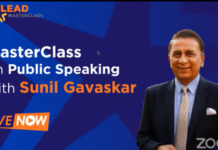Forest Delaney
Master of Business Administration (MBA) degrees are among the most sought-after programmes domestically and abroad. They are a great way to advance your understanding of important business procedures and allow you to advance successfully in your career. However, with so many options available, it can be challenging to understand the different types of MBAs, the best universities, and the locations for study applications. This guide fills that need; expert tutors deliver postgraduate tutoring in all subjects online, and we asked them all about the best universities in the Uk for MBAs. Expert online tutors can support students with postgraduate tutoring in all subjects, and we recommend you check some out to help you on your MBA journey!
Utilising the know-how of an online tutoring company, This guide to MBAs and what you need to think about when applying was put together by a leading authority on MBA admissions, Richard Evans. Richard has aided students in obtaining admission to prestigious MBA programmes at institutions like the London Business School, Bayes Business School, Oxbridge, Imperial, and Imperial College. Most prestigious business schools also demand that MBA candidates take the GMAT or GRE admissions exams. A private GMAT tutor can help you plan your time efficiently to prepare online for the GMAT exam
More than 90% of students who prepare for the GMAT exam online with a GMAT tutor get into the most prestigious MBA programmes in the UK and worldwide. Get in touch with an online tutoring agency immediately if you need professional, one-on-one assistance with your MBA application.
What is an MBA program? | master of business administration | Apply for an MBA degree | type of MBA programs are available | History of the MBA
A popular postgraduate degree known as an MBA (Master of Business Administration) enables professionals to develop the skills necessary to succeed in senior management-level positions. MBA programmes typically include topics from Economics, Marketing, Finance, Accounting, and Management, among other disciplines.
Unlike many other postgraduate programs, most MBA programmes require applicants to have at least a few years of professional experience in the industry before applying. It is extremely uncommon for students to pursue an MBA immediately following their undergraduate degree. In actuality, applicants to the most competitive MBA programmes have an average of 5-7 years of experience.
Some universities also offer part-time and flexible courses, enabling students to fit their MBA studies around other obligations like professional work.
What is an Executive MBA (EMBA)? What does an MBA involve? | different types of MBA
Executive MBAs (also referred to as EMBAs) are intended for professionals with extensive prior experience in management or business-related positions. Applicants typically need to have more than 10 years of experience in order to be taken into consideration for them because they cover higher-level concepts and strategies.
While some universities only offer one of the two, others offer both EMBAs and regular MBAs. Researching this is essential before applying to a university because the courses differ greatly from one another and have various admission requirements.
How much does an MBA cost? | What is the cost of an MBA | How much does an MBA programme cost? | How much does it cost to pursue an MBA | MBA application cost
MBAs are typically among the most expensive postgraduate degrees you can pursue. MiMs (Master’s in Management) courses are almost always cheaper than MBA courses, which in the US frequently cost six figures. With a cost of $241,984, MIT Sloan is now the most expensive MBA in the world. Although premier MBA programmes like those at Oxford and Cambridge can cost up to $45,000, the average cost of an MBA in the UK is between £10,000 and £15,000.
However, for some professionals, the cost is worthwhile because they are highly valued by many employers, which can result in a better salary and a wider network of professional contacts. Don’t worry if you don’t have the money upfront—the cost of any postgraduate school, including an MBA, can typically be paid back over a long period of time!
Some colleges additionally provide grants and/or scholarships to assist aspirant MBA students in financing their studies. For instance, Imperial provides a variety of scholarships, awards, and bursaries that students from various backgrounds may be eligible for, such as the Advisory Board Scholarship, Imperial Excellence Scholarship, and Black Future Leader Award.
What are the entry requirements for MBAs? | MBA admissions requirements | MBA application process | Pursue an MBA degree requirements
MBA programmes typically require candidates to have a good university degree (2:1 or above) in any subject and several years of professional experience. Most prestigious business schools also demand that MBA candidates take the GMAT or GRE admissions exams.
For more information on the entry requirements for each of the top MBA programmes in the UK, see the table below. If you’re unsure if you meet the entry requirements, you can speak with one of the dedicated MBA coordinators at many universities.
What are the GMAT and GRE?
Two popular admissions exams, the GMAT and GRE, are needed for postgraduate business programs, including MBAs. Both exams evaluate the specific reading, writing, analytical, and quantitative abilities.
Most MBA programmes require applicants to take the GMAT or GRE and a few other postgraduate business and management courses to be eligible for admission. The table below lists which prestigious universities require (or suggest) a GMAT or GRE. Always confirm whether you must take the GMAT or GRE in advance by contacting your chosen university directly.
You can get ready for your admissions test and get into a top business school with the help of our team of committed GMAT tutors and GRE tutors. You can be confident that you’re receiving the best assistance because more than 90% of our MBA students receive offers from their top or second-choice schools. To learn more, get in touch with our MBA team.
What are GMAT waivers?
Many applicants cannot take - or fear taking - difficult entrance exams like the GMAT and GRE due to the months of preparation and various other factors. Few universities provide GMAT waivers for MBA applicants, though they are uncommon. Both Imperial and London Business School have forms that applicants can use to request GMAT waivers, but only after submitting their CVs for review. According to London Business School, “In most cases, we will need to assess a full application before determining whether to grant you a GMAT/GRE waiver.”
Best universities for MBAs in the UK |Universities for online MBA programs | Study the MBA curriculum Uk | MBA graduate degree program | Best Universities for traditional MBA, accelerated MBA, or part-time MBA business degree in the UK
The top universities for Business Management, according to the QS World University Ranking, that offer MBAs can be found in the table below, alongside their respective entry requirements.
UK ranking 1
University London Business School
GMAT/GRE required? Yes, a valid GMAT or GRE score is required.
Average GMAT score of successful applicants 708 (GMAT)
Additional requirements
- A one-page CV
- Two 500-word essays answering questions on your post-MBA goals
- A transcript of your grades from each university you have attended (if you are made an offer)
UK ranking: 2
University: University of Cambridge
GMAT/GRE required?: Yes, a strong GMAT or GRE score is required
Average GMAT score of successful applicants: 687 (GMAT)
Additional requirements
- A minimum of 2 years of work experience
- A good 2:1 honours degree
- A personal statement answering questions on your post-MBA career plans
UK ranking: 3
University: University of Oxford
GMAT/GRE required?: Yes, a competitive GMAT or GRE score is required
Average GMAT score of successful applicants: 690 (GMAT)
Additional requirements
- A one-page CV
- Have at least two years of full-time work experience
- Provide your university degree academic transcripts
- A 250-word supporting statement
UK ranking: 4
University: University of Warwick
GMAT/GRE required?: Yes, a well-balanced GMAT score or a valid GRE score is required
Average GMAT score of successful applicants: 658 (GMAT)A
Additional requirements
- 2:1 honours degree
- At least three years of post-graduation professional business experience
UK ranking: 5
University: University of Manchester
GMAT/GRE required?: Yes, a GMAT or GRE result is required
Average GMAT score of successful applicants: 630 (GMAT)
Additional requirements
- Typically a first-class or 2:1 honours degree (and in the top 25% of your class)
- Minimum of three years post-graduation work experience with strong, consistent career progression and achievement
UK ranking: 6
University: Imperial College London
GMAT/GRE required?: Yes, a valid GMAT or GRE score is required
Average GMAT score of successful applicants: 6.638 (GMAT)
Additional requirements
- A minimum of three years of continuous relevant full-time work experience after graduation
- A good undergraduate (typically at least a 2:1) degree from a recognized university Or full membership of the Institute of Chartered Accountants in the UK or Ireland (ICAEW, ICAS or Chartered Accountants Ireland), Chartered Institute of Public Finance and Accounting (CIPFA), or the Association of Chartered Certified Accountants (ACCA)
- Or Associateship or Fellowship of the Chartered Institute of Management Accountants (CIMA)
UK ranking: 7
University: Bayes Business School – Formerly Cass Business School (City, University of London)GMAT/GRE required?: Yes, all applicants are required to take either the GMAT or GRE
Average GMAT score of successful applicants: 630 (GMAT)
Additional requirements
- A minimum of five years of full-time work experience gained after graduation.
- A good university degree (2:1 or above) or appropriate professional qualification. Alternatively, at least six years of relevant business experience if you do not have a degree.
- A one or two-page CV
- Application questions
UK ranking: 8
University: Lancaster University
GMAT/GRE required?: All successful applicants are required to provide either a
Alternatively, applicants can provide a Lancaster Admissions Essay in lieu of a GMAT score.
Average GMAT score of successful applicants: 601 (GMAT)
Additional requirements
- Alternatively, applicants can provide a Lancaster Admissions Essay in lieu of a GMAT score. A 2:1 honours degree (UK or equivalent) in any subject
- A minimum of three years of professional work experience since graduation.
- Your CV
- A detailed personal statement (minimum 500 words)
UK ranking: 9
University: University of Bath
GMAT/GRE required?: You do not need a GMAT score to apply to Bath’s MBA, but it may help you stand out and will be taken into account if submitted
Average GMAT score of successful applicants: 610 (GMAT)
Additional requirements
- At least three years of full-time, post-graduation work experience with evidence of career progression
- A 2:1 or above undergraduate degree or international equivalent. Bath may also consider candidates who don’t hold a degree but do have considerable work experience
- 10University of LeedsNot required/AAt least three years’ work experience, including appropriate management experience and evidence of career progression
- A good Bachelor’s degree (2:1 or above) or an acceptable professional qualification
Does LSE offer an MBA?
LSE does not provide an MBA. Instead, in collaboration with NYU Stern and HEC Paris (together known as Trium), it gives a distinguished Global Executive MBA (EMBA). The LSE also provides a 2-year Global MiM (Master’s in Management) programme and an MSc Management course. For additional details on the courses offered by LSE, read our guide to the top business and management schools.How can we help?
The admissions consultants at the online tutoring company are true professionals in assisting students in being accepted into the best university programmes in the UK. The committed business and management tutors in our network can assist you in getting ready for everything from the GRE and GMAT to the most difficult business school interviews at institutions like London Business School, Imperial College, and LSE. Get in touch with our team for assistance with your MBA application immediately.
FAQs
What is the difference between an MBA and other postgraduate degrees? What other areas of business are there?
The Master of Business Administration (MBA) degree differs from other postgraduate degrees like the MiMs in a number of ways (Masters in Management).
First, MBA programmes typically demand a minimum of 3-5 years of professional experience from applicants. In contrast, MiMs and other business-related Master’s degrees often only accept applicants with a maximum of two years of work experience. Additionally, unlike other forms of Master’s degrees, MBAs nearly always require applicants to take a test (GMAT or GRE).
MBAs are typically more competitive than other postgraduate programmes with a management concentration. In the UK, MBA programmes are likewise more geared toward foreign applicants.
MBA programmes typically cost more than MiMs and, in the US, can frequently cost six figures. The most costly MBA currently is from MIT Sloan ($241,984).
Is it worth it to earn an MBA?
Despite being one of the most expensive postgraduate programmes, MBA programs offer great benefits to your resume. Aside from teaching you the most modern and efficient management techniques, an MBA also gives you priceless access to leading industry professionals. A top-tier MBA can also make you stand out when applying for positions and businesses in demand. In a survey conducted by the Graduate Management Admission Council (GMAC), a global association of business schools, 82% of participants claimed that having an MBA increased their earning potential, and about 70% of recent full-time MBA graduates claimed that they would not have been able to land their jobs without their degrees.
Is the IELTS required for MBAs in the UK?
It is typical for the IELTS (International English Language Testing System) to be required if you are applying for an MBA in the UK. Most UK business schools require an IELTS score of 6.0-6.5.
What job can I get with an MBA?
An MBA can open doors to management-level positions in a variety of global businesses, including:
- Finance
- Accounting
- Marketing
- Consulting
- Technology
- Transport
- Non-Profit
- Pharmaceuticals
- And more
The IELTS (International English Language Testing System) is frequently required if you’re going for an MBA in the UK. A minimum IELTS score of 6.0 to 6.5 is typically required for admission to UK business schools.
Salary of an MBA | How much do business professionals make?
An MBA graduate’s starting salary can range from $91,000 to $115,000 annually, depending on the employer.
- The main rules for registering at the online casino Wild Card City Australia
- Gry hazardowe w kasynie Mostbet
- Bitcoin Blender - BTC mixer - TOP 10 BITCOIN MIXERS - Bitcoin Blender
- Digitalization on the rise in real estate - most want to invest
- Viral disease infectious mononucleosis





























































